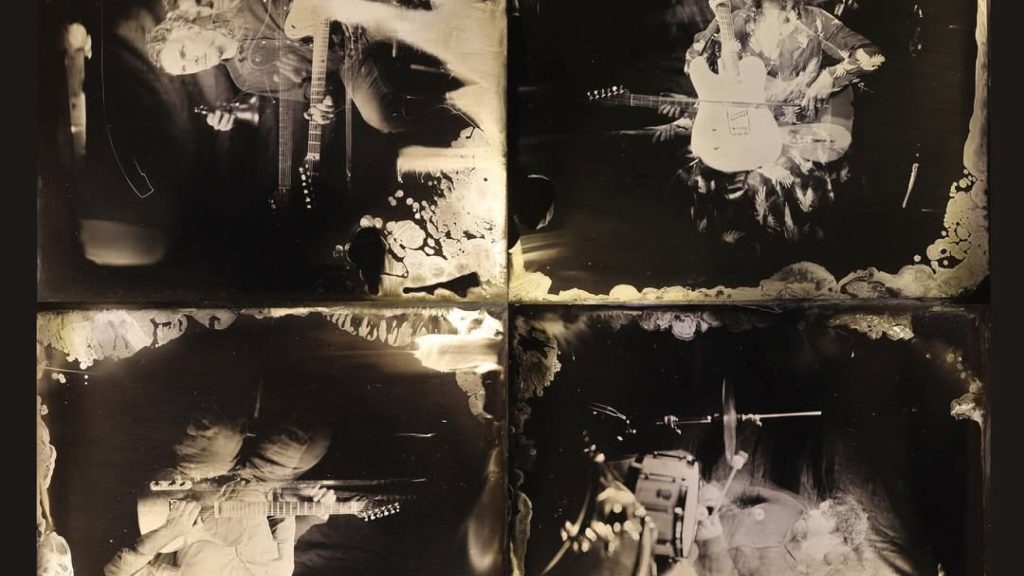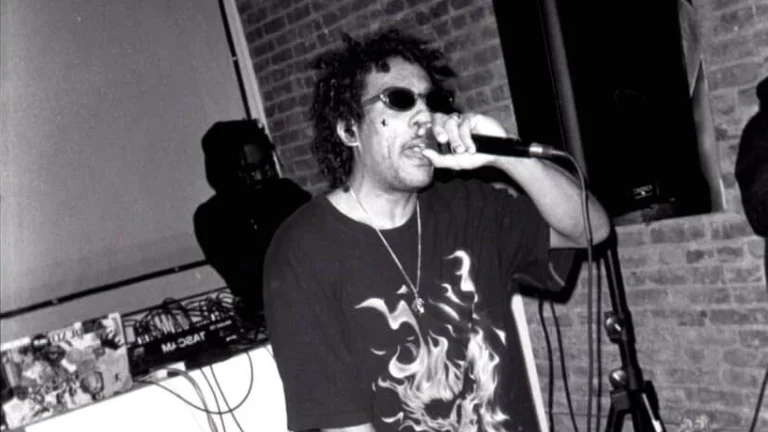Remember the debacle with American Eagle and Sydney Sweeney’s double entendre, “My jeans are blue?” The ad obliquely evoked dog-whistle messaging, a propaganda device where polarizing ideas aren’t explicitly said but implied through cryptic language. To a slew of viewers, Sweeney’s phrase was an allusion to regressive values: Americana ethos, Eurocentric beauty ideals, social Darwinism, “good” vs “bad” genes. To some, it was not that deep. But to others, the it’s-not-that-deep rhetoric is the exact conduit through which weird behaviors become normalized.
Understanding its psychic potency, HARESS’ latest LP Skylarks also weaponizes the ambiguity of peril only being alluded to, but via (benevolent) instrumentals straddling the line between tranquil, gradual arrangements and cacophonous ones—something akin to Grouper obsessing over caroline 2. Wholly produced in Bishop’s Castle—a small, insulated English town in the peripheries of Wales, proudly powered by its artistic community—the proposition here is to interpret the band’s milieu, inflecting post-rock, folk, ruralism, phantoms, and, as they told The Quietus, The Gallows Pole’s King David along the way. Which would compute as a tedious and trite perspective if not for the context: In a world of AI reliance and cybernetic genres like hyperpop, these analog, intimate revelations not only rebrand and recenter humanism to listeners, but add a new facet to themes of paranoia.
That’s why the album’s first minutes’ rhythmic, symmetric guitar riffs succeed in thrusting you into the dark; how the last seconds’ sacred choir aptly pulls you back into the light; and how the interim just glides across the wait and the rescue, the claustrophobia and the liberation. Lyrics that would usually articulate these abstractions—like most ambient albums—are absent. Still, emotions abound. Be prepared to feel epic amid the psychedelic chords of ”King David” to then be left with lugubrious, sparsely looped drums at the end; or perhaps unhopeful after the sprawling chords of “Skylarks” dissipate wryly.
Of all this range, though, only one single emotion more broadly defines the project: fear. Relishing its imminence, psychological horror commands Skylarks, narrating its bleakness and allowing things to lull and entice at their own pace. To be more specific, twee or theatrical pyrotechnics are avoided; instead, subtle contrast amplifies the dread, with each half of the album serving as a foil to the other: The first sounds more atmospheric and pared back; the second leans slightly more dynamic. While an interesting experience in situ, it feels a bit too derivative within their canon—previous LP Ghosts styled its voyage in the same emotional molds of the UK “North vs South” bleakness, with a similar arc of dynamism and restraint across tracks. This lack of interwoven nuance might come across as worn-off novelty for older fans.
But one rehashed plot device is simply not enough to negate Skylarks’ immersiveness or delineate HARESS’ holistic significance. Look around: In the zeitgeist of Dubai Chocolate Labubu, surreal ASMR, and AI Barbie deriding Ken, the overarching culture is already hybridizing the bombast, the emotional, the digital. This convulsive, uncertain structural transition just fuels dread on a large scale. Have you seen how some CEOs (allegedly) still hesitate to implement AI, or how an OpenAI ex-worker has warned us about the inception of AGI, the theorized successor of AI, capable of surpassing human intelligence? These manifestations of apprehension already exist. So hopefully, in the meantime while things clear up, you and I can find some consolation and excitement, for at least 51 minutes and 4 tracks, wallowing in the counter-culture of Skylarks—a more analog, ChatGPT-unaided world, sensing the weight of hippiedom in its ramified form; hearing the sound of people not being pretentious, but rather ambivalent, perilous, free.





